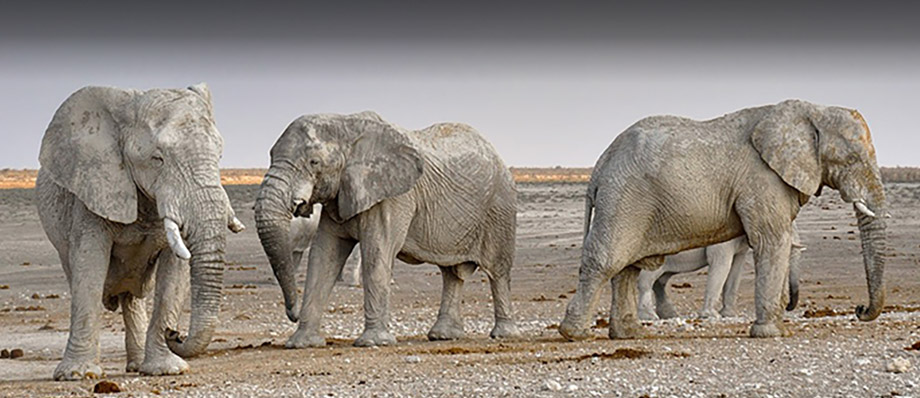
A WPS team member writes of their recent participation in an undercover sting to catch poachers in Namibia. Names and areas where the informants operate have been intentionally left out so as not to jeopardize the safety of those involved and of future intelligence efforts.
Recently I was in Namibia to investigate the current increase in poaching incidents throughout this beautiful country, and to assess how our wpsWatch technology system could help. I was hosted by a real legend, a person who knows Namibia from top to bottom and has a passion for nature. His knowledge and involvement with different anti-poaching projects was inspiring.
We met with two extraordinary men fighting the battle against poaching. These informants go out undercover to gather valuable intelligence to get poaching culprits behind bars. They risk all, working with the defense force to assist in joint arrests, moving through dangerous game areas to track down poachers, all this without proper equipment.
One day we had ‘intel’ from the informants that there were three different poaching groups that wanted to trade elephant tusks. These people are very well organized and have different methods to deliver the tusks once a deal is made, and therefore identifying the option with the least possible interference was the way to go. Everything was set, money was arranged, and contact had been made with the poachers to meet at a designated area on the border of a river. Two police and three military would provide back up and make the arrest.
At the prearranged’ ‘spot’ the dealer arrived in a nkoro (self-made canoe chopped out of local tree stumps), and after we showed him the money, the call was made to his colleagues to bring the tusks. I was very nervous, especially knowing that things going bad are always a possibility. So many of these situations can change, because the money is also an attraction and if the poachers can get away with the money and the tusks they brought, it is a double score for them. But in this case, the undercover agents had carefully planned everything beforehand, and 14 tusks were taken out of the ncorro and placed on the bank of the river ready to be weighed. Each tusk is weighed and payment is made according to the weight per pound. As the deal was reaching the end, the officers rushed in and arrests were made on all of us, so as not to blow our covers. Two of the culprits managed to run away but three were taken in to custody that day. And two days after our departure, the other three were arrested with three more large tusks, all done through the great work of the two guys providing intelligence.
It was mentioned that in the area we were in, as many as 205 elephants were poached for their tusks alone. It came as a huge shock to me that rhino and elephant poaching has increased drastically over the last year in Namibia. As with other countries in Africa, there are many local operations trying to put an end to poaching. The Namibian Government is proud of their natural inheritance and has plans in place to assist where they can, however there are limited funds and personnel for this.
How You Can Help
There is always a shortage of basic equipment for the people on the ground. Many organizations are tasked with protecting wildlife without the proper resources to confront the poaching crises that is hitting nearly every national and private game reserve in Africa. With Tech Share, WPS raises funds and makes grants to provide equipment and technology to these wildlife stakeholders.

